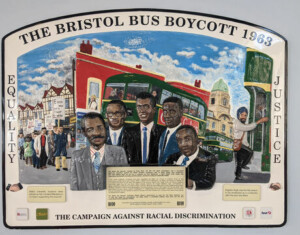What Could a Universal Basic Income Deliver in a Future Bristol?

Share this
In the city of the future, citizens would feel secure and able to flourish. That includes income security. Technology is both forcing and enabling lifestyle change. The best response is to maximise the gains it offers and mediate any loss it imposes. Automation will continue to offer a plethora of accessible services, but will also continue to change employment patterns, and the income which goes with employment. Some jobs will be lost; other new services will create jobs. Retraining may become regular in a flexible job market. The gig economy may flourish, for some a fulfilling lifestyle, but creating precarious income. Even if total employment holds up, evidence suggests that total employment income across the city may decline as technology sucks labour income out of the economy. For some citizens, household income may become inadequate, meaning that for the city economy, demand will decline. We already suffer the phenomenon of in-work poverty, meaning that full employment work and wages no longer guarantee adequate household income.
Citizens of this future technology-intensive city will need a basic income for their financial security. The basic income proposal is for all citizens to receive a regular money income into their bank account unconditionally. Citizens currently receive a basic income, but from a mixture of work, welfare benefits and pensions. This pattern will continue to change. Inadequate working income means that too often families have to resort to increased household debt. Meanwhile, welfare benefits remain targeted and therefore highly conditional. Conditionality too easily becomes harsh and severe, intrusive and humiliating. Take-up is often low, especially in vulnerable groups like the elderly. And, most importantly, conditionality creates unemployment and poverty traps, because benefits are withdrawn if people take work, therefore acting as a disincentive. Until recently, anyone receiving benefit effectively lost 96 per cent of income from new work. Universal Credit has reduced this to 70 per cent, but the taper is still disincentivising. Basic income suffers no withdrawal if someone takes work.
An ideal city of the future would not be characterised as a community with inadequate or precarious income, increased household debt and a harsh conditional welfare system. The security of an unconditional basic income would increase individual and family wellbeing, as well as increasing social cohesion through a strengthened sense of belonging. Indeed, basic income is a human right. We all have a shared and equal right to the infrastructure of the city we inherit, and to the inherited technology which fires its productive economy. This citizen’s birth right is expressed in a universal basic income. Basic income addresses the social injustice of inequality of today’s city.
The common objection to basic income is that it is either too small to be meaningful, or too large to be affordable. I’ve addressed this question of affordability, both on the website ‘The Case for Basic Income’ at www.ubi.org and in my book Basic Income and Sovereign Money. I’ve also pointed out that the Covid-19 pandemic generated a huge macroeconomic pilot of basic income. In the furlough scheme, we paid £24,000/year to three million people, costing a total of £69 billion, all of which was funded as part of the Bank of England’s purchase of £875 billion of government debt, essentially directly funding government expenditure by debt-free money creation. It worked OK.
Here, I’d like to focus more on the effect of universal unconditional basic income on the community of the city of the future. For most of us, full-time work has meant a five-day week, working 8am to 4pm in a factory, 9am to 5pm in an office, or retail hours in a shop. This fixed structure has started to change. Many people now work part-time, or partly from home. Technology may mean that we all need to work less. This gives us an opportunity to rethink, to reconceptualise our lives. Working hours per week have declined consistently over the last several decades. Perhaps we will be able to work a 15-hour week as Keynes predicted so long ago? Philosophically, we may become less work-centric, less defined by our work and more by our creative potential. Do we fear ‘having more time on our hands’, or can we flourish in the context of this new opportunity? Work is important for things other than income, including social networking and interaction, personal dignity and a sense of belonging. So how can the culture of the future city adapt and evolve to support new lifestyles?
Perhaps we can consider the experience of people who have retired from work for some answers. Very few of them are desperate to return to work, just as many people currently at work aren’t anxious to work more but are keen to get home at the end of their working day. Options for increased leisure, creative activity and engagement abound. Once free from the income requirements of commercial market work, all sorts of non-market activities become possible. Some may extend hobbies like photography, some pass on various skills by training others, some work with charities, some take up writing or become cinema buffs. If envisaged and supported by the city authority, we can imagine a thriving, interactive, inspirational community. Moreover, this will have a positive ecological effect. Currently we rely on more jobs to provide income to people. Unless we can guarantee that all new jobs will be totally green, then pushing up employment – and therefore production and consumption – will increase the exploitation of nature’s resources and create further polluting emissions.
Current experience from pilots of basic income in city life are illuminating. Ireland has introduced a basic income for artists, to support the arts sector in its recovery from the Covid-19 pandemic. The Irish government has allocated €25 million to provide €325/month to 2,000 artists chosen by random selection for three years. The impact for artists involved in the scheme will be monitored against a control group. A similar scheme in San Francisco has allocated $1,000/month to 100 artists, whilst the Andrew W Mellon Foundation has launched a $125 million project to give $1,000/month to 2,400 artists across New York state. Meanwhile a basic income pilot has been introduced in Wales for 18-year-olds leaving care. The scheme pays £1,600/month for 24 months to around 500 recipients, costing £20 million in total, and is being evaluated by the Children’s Social Care Research and Development Centre at Cardiff University.
The most widespread basic income pilot projects focussing on a city population are in the USA. Stanford UBI Lab reports that about 100 US cities now have a UBI pilot. One of the earliest in Stockton, California, starting in 2019, reported improved mental health and financial stability for recipients at its halfway point. In the UK, two micro-pilots paying £1,600/month to 15 people are proposed in Jarrow and East Finchley. However, in June 2023, the project reported that no funding had been found for the £1.65 million scheme cost. Recipients would be taxed on the payment, and would keep their current welfare benefits, meaning that no comparison of conditionality vs universality would be gained. It’s possible that a cross-sectional study across different income groups might generate research findings more immediately.
Overall, these pilots are useful in raising public awareness of the basic income proposal. Their careful research methodologies mean that significant outcomes will be rigorously tested and reported. Initial results already show an increase in wellbeing for recipients, without any substantial decrease in labour market participation. Since each pilot differs in its target recipient group, and in its provision and conditionality, a wide set of findings for basic income against multiple criteria will be generated for comparison, research, and feedback for future scheme proposals.
The limitations of pilot UBI projects are that they are necessarily neither universal, nor unconditional, nor permanent, thus failing to test essential elements of the UBI concept. They may give some indicative data on the economics of basic income but are unable to test the full macroeconomic impact. Pilot schemes lack a proposed pathway from the pilot to full implementation in the national macroeconomy, thus running the risk of terminating without a forward strategy and kicking the UBI concept into the long grass.
We’re entitled to dream. Perhaps we can dream together of a future city whose citizens have secure adequate income, who are released from the ravages of low pay, of in-work poverty, of harsh conditional welfare, whose dignity is restored by greater equality in their city society, who flourish in creative individual, communal and civic activity, all whilst reducing ecological damage in a net zero world? Perhaps we can even have such a dream come true? A universal, unconditional, basic income is an important enabling element of this dream.

Geoff Crocker writes on basic income at ubi.org and contributes to research on the macroeconomic feasibility of universal basic income and debt-free sovereign money. His career started at Rolls-Royce Bristol, and then spanned several decades in technology strategy, consulting for government agencies, large multinationals and small and medium-sized enterprises. He worked on transition of the Russian economy for 16 years. He is also Chair of Bristol Care Homes.
This article appears in Bristol 650: Essays on the Future of Bristol, a book bringing together essays from over 30 contributors, addressing some of the challenges the city faces and sharing ideas about how we might meet them. From dealing with the past, the future of social care, culture and housing to building a city of aspiration, the book looks to promote learning about the future of Bristol and encourage new ideas to come forward.
Free copies of Bristol 650: Essays on the Future of Bristol will be available at selected Festival of the Future City events in October 2023, or you can find articles featured in the book at bristolideas.co.uk/bristol650book.

